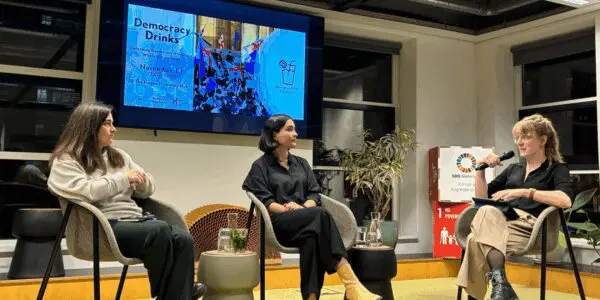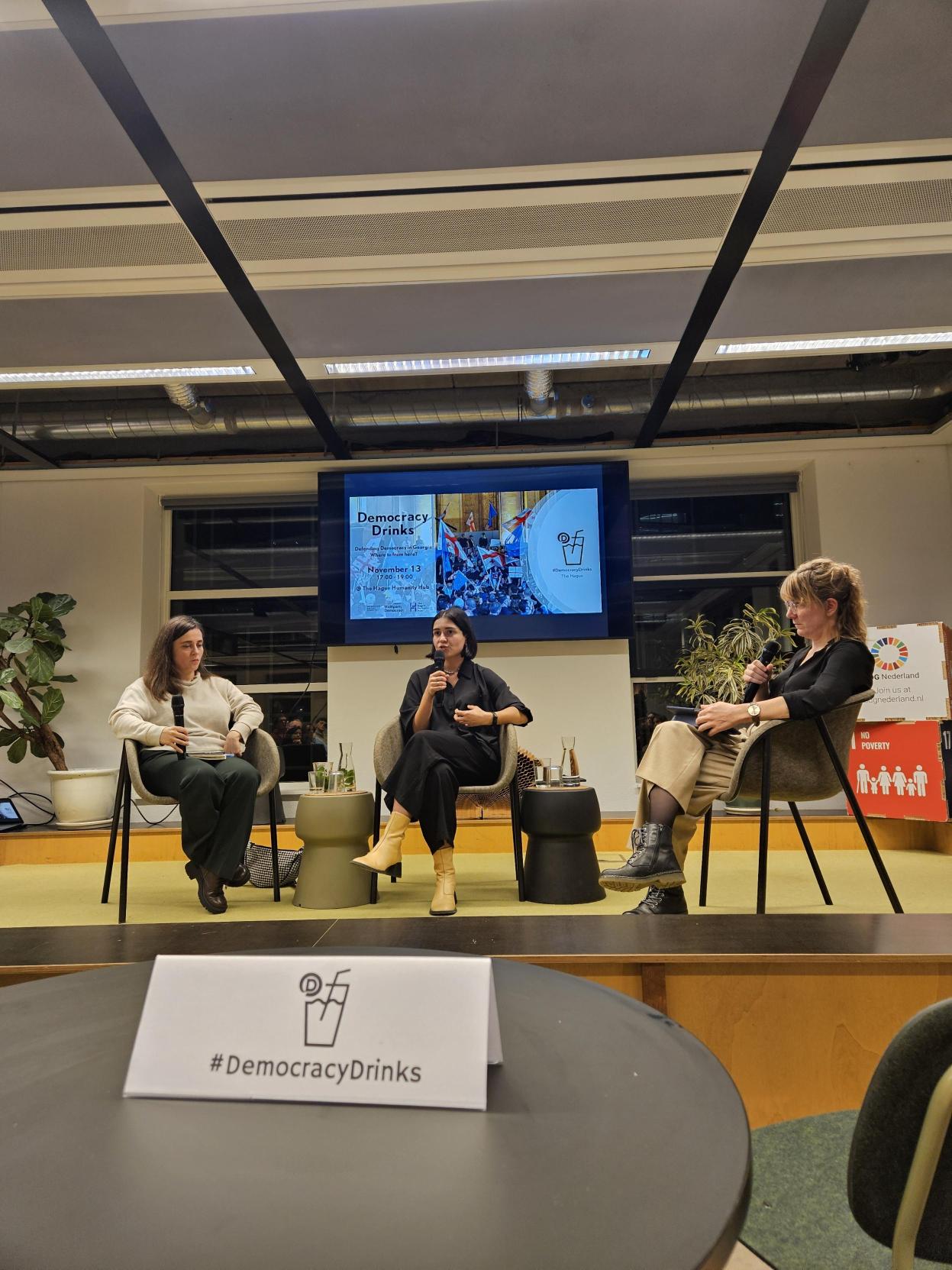On November 13th, democracy advocates and Georgian diaspora gathered in The Hague for #DemocracyDrinks – an ongoing collaboration between the Netherlands Helsinki Committee (NHC), the Netherlands Institute for Multiparty Democracy (NIMD), and The Hague Humanity Hub (THHH). In this edition, titled “Defending Democracy in Georgia: Where to from here?”, panelists Dinara Gagoshidze (NHC) and Simona Ognenovska (European Centre for Not-for-Profit Law), along with moderator Amy Eaglestone (Leiden University) discussed how we can strengthen Georgian civil society and amplify local voices, one year after the contested election that pushed the country away from its path towards the EU.
Balancing in-country context and cross-border trends
“We must see democratic backsliding as a regional trend, not isolated to just Georgia.”
Dinara reminds the audience that treating the situations in Georgia, Azerbaijan, Belarus and beyond as isolated incidents risks making our responses counter-productive by ignoring broader regional trends. At the same time, Simona warns that European action must adapt to local realities in each country, “rethinking how civic activity can look in different contexts,” depending on the severity of backsliding and freedom of civil society.
Georgia’s quick democratic descent and the role of civil society
Above all, the panelists urge the audience not to take democracy for granted. Explaining that Georgia was comparatively free compared to its neighbours until 2024, Dinara remarks that “no one in Georgia thought it could become this bad, this quickly” yet the government’s backtracking on democratic progress over the past year was unprecedented. Simona attributes much of Georgia’s democratic deterioration to autocratic legalism: the strategic use of law to prosecute dissent.
“How can we best support civil society?” Amy prompts the panelists. Simona identifies comprehensive financing of civil society organisations, especially in the absence of US funding, as the top priority. “The EU is doing a lot, but there is a need for more,” she adds. “We must also not underestimate the importance of bold action,” Dinara continues. “The EU should not be afraid to act decisively against democratic backsliding in Europe.”
Hope endures – action must follow
Inspired to see a room full of not only Georgians but also democracy advocates from across Europe, one attendee noted that the situation in his country might be deteriorating, but “hope never dies in Georgia.” Dinara echoes that sentiment, adding that “it might not always be rational, but hope is still strong,” across the country. Yet, the panelists urge policymakers not to rely solely on hope: instead, they must keep Georgia high on the political agenda and directly partner with civil society organisations as key stakeholders for democratisation.
Key Insights
- Democratic backsliding is a regional trend, not an isolated phenomenon. Georgia is part of a broader pattern.
- European policymakers must view civil society as their main partner pushing for democratisation in the EU’s east – not just one of many relevant players.
- Engagement with civil society must focus on providing them with the resources needed to fight against democratic backsliding and autocratic legalism.
- We must never take democracy for granted: Georgia’s strong civil society, pro-EU attitudes and comparative freedom before the 2024 elections, were not enough to stop rapid backsliding.
Want to take action to defend democracy at home and abroad? Attend our next Democracy Drinks! Join our Democracy and Rule of Law Collective

